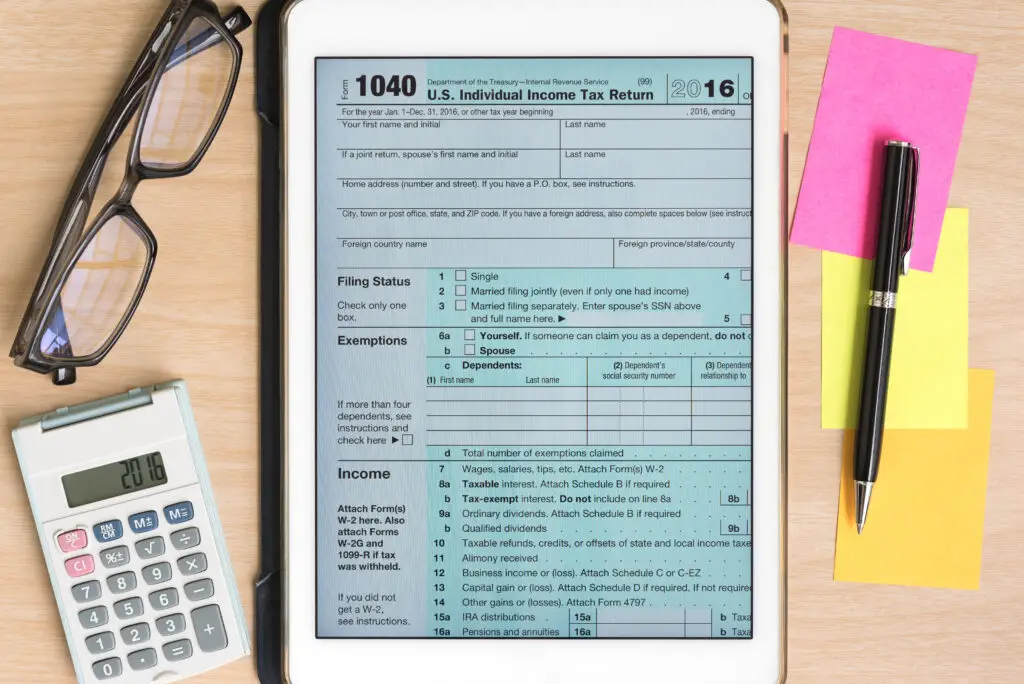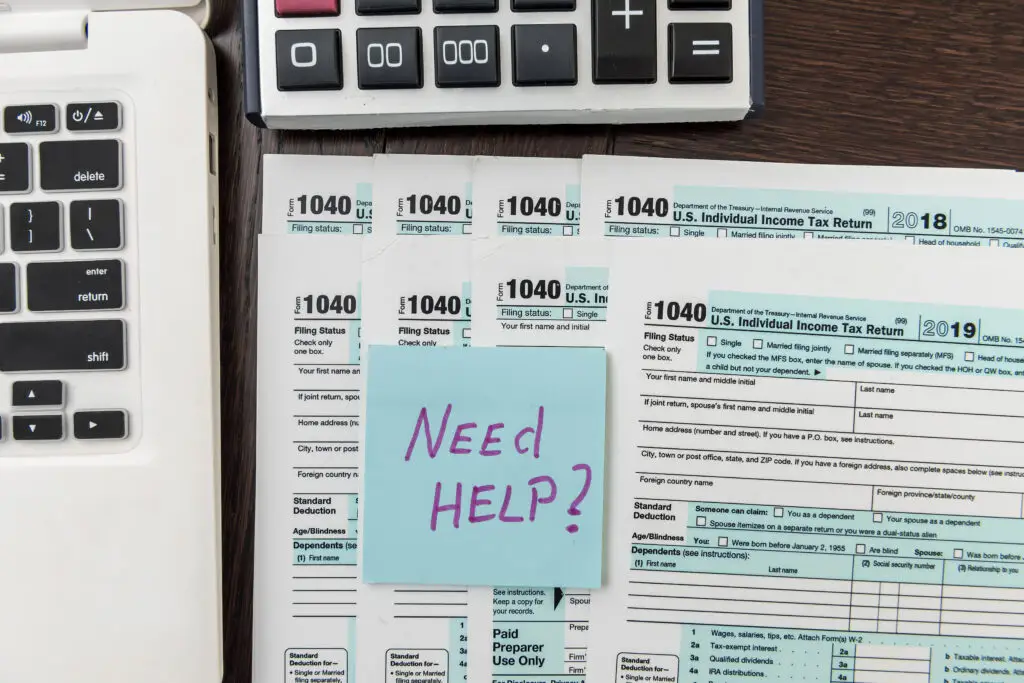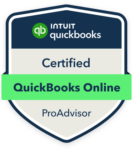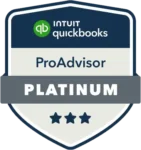A Guide to IRS Form 1099 — why is this form so important for small business owners and freelancers? Simply put, Form 1099 helps report income earned from non-employee sources, playing a key role in your tax reporting and overall financial management. It may seem daunting at first, but understanding the essentials can protect you from penalties and ensure your financial practices are up to date.
Do you know what types of 1099 forms you might need to use or who is responsible for filing them? What about the rules you need to follow to stay compliant? This guide will help answer these questions and more. From breaking down the different types of 1099 forms to explaining key rules and common questions, we’re here to make things clear and straightforward.
Want to ensure your business stays compliant and organized? This guide from LUCI Financial Solutions provides all the information you need!
What is IRS Form 1099? Explained By Our Experts

What is Form 1099, and why is it important? At its core, IRS Form 1099 is a collection of tax documents that help report income that isn’t earned through traditional employment. It’s an essential tool for small business owners, freelancers, and independent contractors who need to report various sources of income for tax purposes.
Definition & Overview
IRS Form 1099 reports different types of income received outside of regular wages, salaries, and tips. Whether it’s income from freelance work, investment earnings, or rental income, this form helps keep your tax records accurate and up to date.
Its main purpose is to ensure that both the IRS and taxpayers have a complete picture of the income being reported. This helps in tracking and fulfilling tax obligations properly.
Comparison to Form W-2
So, how does Form 1099 differ from Form W-2? While Form 1099 is used for independent contractors, freelancers, and other non-employee income sources, Form W-2 is designated for employees.
If you’re on payroll and receive a regular paycheck, your employer issues a Form W-2 that reports wages, taxes withheld, and other earnings. Conversely, Form 1099 focuses on income for those not classified as employees, which is vital for freelancers and small business owners.
Importance for Businesses
Why does accurate reporting matter for businesses? Filing IRS Form 1099 correctly ensures that your business complies with IRS regulations. Mistakes or missed deadlines can lead to penalties or audits, which can be stressful and costly. Companies must keep thorough records, file on time, and double-check their forms to avoid unnecessary trouble and keep their finances in order.
6 Types of IRS Form 1099 | Everything Thing You Should Know

What types of Form 1099 should you be aware of? The IRS Form 1099 series is diverse, catering to various income types outside typical employment wages. Understanding these forms helps you identify which ones apply to your situation. Let’s break down the most commonly used forms and why they matter.
1. 1099-MISC
Form 1099-MISC was the go-to for reporting non-employee compensation until the introduction of Form 1099-NEC. This form covers a range of payments, such as rental income, freelance payments, and other miscellaneous income types. If you’ve paid someone for services in a non-employee capacity, like an independent contractor or consultant, this form would traditionally have been used to report that income.
Though it’s now primarily used for reporting prizes, awards, and other non-wage payments, it’s still important to know when and how to file it. Filing Form 1099-MISC correctly helps ensure transparency and keep your business compliant, avoiding potential issues during tax season.
2. 1099-NEC
Form 1099-NEC was introduced to simplify and clarify reporting of non-employee compensation. This form specifically caters to independent contractors, freelancers, and anyone not on a company’s payroll who earns over $600 in a year. The change streamlined tax filing, separating contractor earnings from other types of income that Form 1099-MISC used to cover.
If you’re a small business owner or freelancer, it’s crucial to understand when and why you need to file Form 1099-NEC. This form ensures that both you and the IRS have accurate records of independent work income, avoiding potential fines and ensuring smooth tax obligations.
Did you know there are several types of Form 1099 beyond the well-known 1099-MISC and 1099-NEC? The IRS Form 1099 series covers a variety of income types. Here’s a breakdown of some other essential forms:
3. 1099-INT
Form 1099-INT reports interest income earned from banks, credit unions, and other financial institutions. Whether you’ve earned interest on a savings account or an investment, this form helps you track those earnings for your tax return. If your total interest income for the year exceeds $10, this form is typically issued to you and the IRS.
4. 1099-DIV
Form 1099-DIV is used for reporting dividends and distributions from stocks, mutual funds, and other investments. It outlines the total dividend income you received during the year, which is essential for investors who need to report capital gains and other types of investment income. Similar to the 1099-INT, this form is generally sent to those who received more than $10 in dividends.
5. 1099-B
Form 1099-B is essential for anyone who trades stocks, bonds, or other securities through a broker or engages in barter exchange transactions. It reports the proceeds from these sales, providing necessary data for calculating capital gains and losses. Properly filing this form helps ensure that your investment income is accurately represented on your tax return.
6. 1099-R
Form 1099-R is used to report distributions from pensions, annuities, retirement plans, and other similar financial sources. If you’ve taken distributions from an IRA, 401(k), or other retirement funds, this form is crucial for your tax filing. It helps you keep track of taxable amounts and early withdrawal penalties, if applicable.
Understanding when and why these other forms matter is key to maintaining accurate financial records and meeting your tax obligations. Each form serves a unique purpose and ensures that all types of income are reported and taxed correctly.
IRS Form 1099 Rules & Requirements | Can You File?

Who needs to file IRS Form 1099? Understanding the rules is key to compliance and smooth tax filing. There are specific thresholds, deadlines, and methods you should be aware of when dealing with IRS Form 1099. Let’s dive into what you need to know.
Who Needs to File?
If your business has paid $600 or more in non-employee compensation, rent, or other applicable income, you must issue a Form 1099 to the recipient and file it with the IRS. This business management requirement applies to independent contractors, freelancers, and vendors.
For example, if you hire a freelance graphic designer or a subcontractor and pay them over $600 in a calendar year, you must report their earnings using Form 1099. Not meeting these thresholds could result in penalties, so it’s vital to track all payments accurately.
Filing Deadlines
Timely filing is crucial for maintaining compliance. The deadline to send Form 1099 to recipients is January 31 each year. This ensures that recipients have their forms in hand for filing their taxes. When it comes to submitting the form to the IRS, if you’re filing on paper, the deadline is February 28. For e-filing, you receive an extra month, with a deadline of March 31. Missing these deadlines can lead to fines, so mark your calendar!
Filing Methods
Now, how do you file IRS Form 1099?
- You can file on paper or electronically.
- E-filing is often preferred for its convenience and faster processing. It allows for quicker data submission, instant acknowledgment, and a reduced risk of errors.
- On the other hand, paper filing, while slower, can be simpler for small businesses with fewer forms.
- Deciding on the method depends on your volume of filings and comfort with tech tools.
Common Penalties for Non-Compliance
What happens if you don’t comply with IRS Form 1099 rules? Penalties for missed deadlines, incorrect filings, and failure to submit forms can add up quickly. The IRS can fine businesses up to $280 per form for late filings. These fines increase if mistakes are intentional or forms are not filed.
For example, if you submit a form late, fines can range from $50 to $280 per form, with the maximum penalty for large businesses being $3,426,000 annually. The IRS also has the authority to audit companies that consistently fail to meet their obligations. Audits can lead to even greater consequences, including additional fines and reputational damage.
Amendments & Corrections
Mistakes on IRS Form 1099 happen—what should you do? Filing an amendment is simple if you know the steps. First, get a corrected 1099 form and mark it as “Corrected” in box 1. Next, accurately fill out the updated information. For paper submissions, send the amended form to the IRS along with a new transmittal form (Form 1096).
For e-filing, use IRS-approved software or services to upload your amendment electronically. Make sure to inform the recipient and keep a copy for your records. Corrections should be made promptly to avoid penalties.
Required Information on the Form
What details must be included on IRS Form 1099? Essential information consists of the recipient’s name, taxpayer identification number (TIN), payment amount, and business details.
For instance, if you paid an independent contractor $1,200 for services, you must include their name, TIN, the payment amount, and your business’s name and address. Here’s a quick example:
- Recipient’s Name: John Smith
- TIN: 123-45-6789
- Payment Amount: $1,200
- Payer’s Info: ABC Marketing, 123 Main St., City, State, ZIP.
Accurate information helps avoid delays and keeps tax obligations on track.
Common FAQs about IRS Form 1099

Who is required to receive a 1099?
If you’re a freelancer, contractor, or service provider who has been paid $600 or more by a business during the year, you should receive a Form 1099. This includes various types of independent workers, such as consultants, graphic designers, and subcontractors. It ensures that the IRS is aware of non-wage income for tax purposes.
What income is reportable on Form 1099?
Form 1099 reports various types of income, including non-employee compensation, rent, dividends, and interest. It also needs to report any payment for services rendered to a business or individual outside of traditional employment, such as freelance gigs or rental income.
Can multiple 1099s be issued to a single contractor?
Absolutely. If a contractor has received different types of payments throughout the year (e.g., one for services, one for rent), separate Forms 1099 may be issued for each type. This helps to properly categorize income and keeps the IRS informed.
What should be done if a 1099 is filed incorrectly?
Mistakes happen! If you notice an error on a Form 1099, you must file a corrected version. Use Form 1099-CORRECTED and follow these steps: mark the form as “Corrected” and make the necessary changes. Send the corrected form to the recipient and submit it to the IRS promptly.
Is e-filing better than paper filing?
Yes, e-filing is generally faster, more secure, and reduces the risk of errors. Many businesses prefer it to streamline the process and meet deadlines without issues.
What happens if a 1099 is not filed?
Failure to file the required Form 1099 can result in penalties from the IRS, starting at $50 per form for late submissions and increasing with time.
4 Basic Tips for Small Businesses to Stay Compliant
How can small businesses ensure they handle Form 1099 correctly? Ensuring compliance with IRS regulations is essential for avoiding penalties and audits. Here are practical tips to keep your business on track.
1. Record-Keeping Practices
Keeping detailed records of all payments made throughout the year is crucial. This means noting the amount, date, and purpose of each payment to non-employees. Clear records prevent confusion when preparing Form 1099s and help ensure that no payments are overlooked or reported incorrectly.
2. Using Accounting Software
Leveraging accounting software can simplify the process of generating Form 1099s. These solutions automatically track and categorize payments, making it easier to stay compliant. Government sectors—from federal agencies to state departments—frequently use reliable accounting software for efficient data management. Tools like QuickBooks and Xero can help your business mirror this professional standard.
3. Reviewing IRS Guidelines Regularly
The IRS updates its requirements annually, so staying informed is vital. Regularly checking the official IRS website or subscribing to IRS newsletters ensures you are aware of any new rules or changes. This practice helps prevent mistakes and avoids last-minute stress as the filing deadline approaches.
4. Hiring a Professional
When should you seek expert help? If you’re unsure about your filing obligations or need guidance, consulting with a professional is a smart move. Here’s a quick guide:
- Assess your needs: Determine whether your income and payment volume require complex handling.
- Hire an accountant or tax professional: Choose someone who is experienced with Form 1099 filings.
- Consult early: Allow yourself enough time for questions and adjustments.
These steps will keep your small business compliant and prepared for tax season.
Wrapping Things Up!
Understanding and accurately filing Form 1099 is essential for small businesses and freelancers. By following the key points covered in this guide to IRS Form 1099, you’ll remain compliant, avoid potential penalties, and keep your finances organized. Remember, proper record-keeping, timely filings, and staying updated with IRS regulations are crucial practices.
Get Connected
Don’t let tax season catch you off guard. Take proactive steps now to ensure that all your 1099 forms are filed correctly and on time. If you need tailored guidance, don’t hesitate to reach out to a financial expert. A professional can provide clarity, save you time, and help you navigate any complexities in the filing process.
The proper preparation can make all the difference, so start today with LUCI Financial Solutions!











